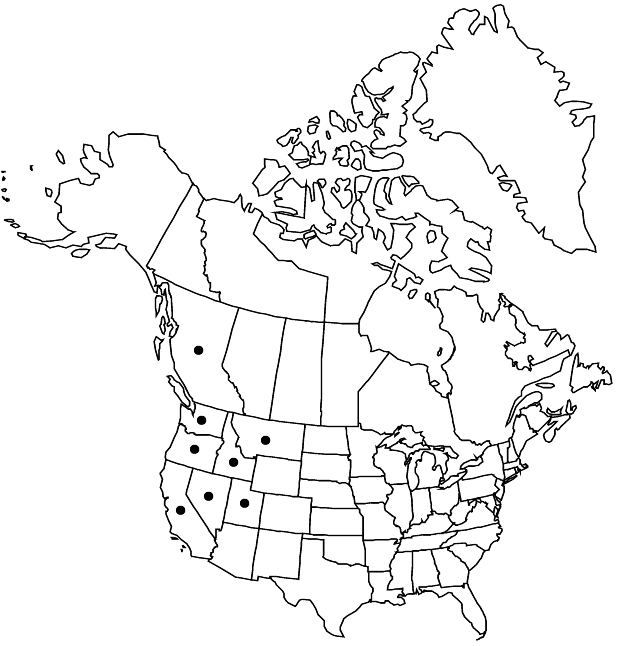Chimaphila menziesii
Syst. Veg. 2: 317. 1825 ,.
Plants rhizomatous, 0.5–2 dm. Leaves: petiole 5–8 mm, channeled adaxially, glabrous or papillose; blade not maculate or, sometimes, maculate, dull and light green abaxially, glossy and green adaxially, lanceolate or elliptic-lanceolate to ovate or lanceolate-oblong, (6–) 10–55 × 4.5–25 mm, base obtuse or acute or decurrent, margins entire or serrulate to serrate, apex acute. Inflorescences 1–3-flowered; peduncle 1 per stem, 2–5 cm, papillose to hispidulous; inflorescence bracts broadly ovate to broadly obovate, free portions shorter than to nearly as long as pedicels from which they arise, 2–7 × 2–7.5 mm, membranous, margins erose-denticulate. Pedicels 6–12 mm. Flowers: calyx lobes spreading or reflexed in fruit, green with margins hyaline or whitish green, ovate to suborbiculate, (3–) 5–6.5 × 2.2–4.5 mm, margins erose-denticulate, apex rounded to obtuse; petals white, often suffused with pink, orbiculate, 5–7 × 4.5–8 mm, margins entire or erose-denticulate; stamens 4.2–7 mm; filament base 0.8–1.3 mm wide, dilated basal portion ciliate to villous; anthers 2.2–3.1 mm, thecae yellowish or tan to pinkish, tubules tan or pinkish, 0.7–1.1 mm, abruptly narrowed from thecae, lateral walls not touching, pores 0.1–0.2 × 0.1–0.2 mm; ovary papillose in lines; style 0.3–0.6 mm; stigma 1.6–2.2 (–2.8) mm wide. Capsules depressed-globose, 4–5 × 5–6 mm. 2n = 26.
Phenology: Flowering (May-)Jun–Aug.
Habitat: Montane and subalpine, coniferous forests
Elevation: 10-2400 m
Distribution

B.C., Calif., Idaho, Mont., Nev., Oreg., Utah, Wash.
Discussion
Selected References
None.